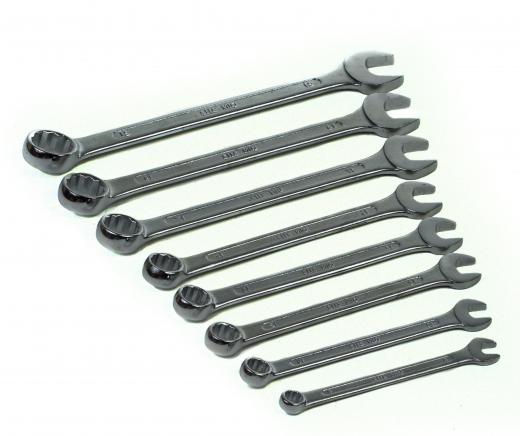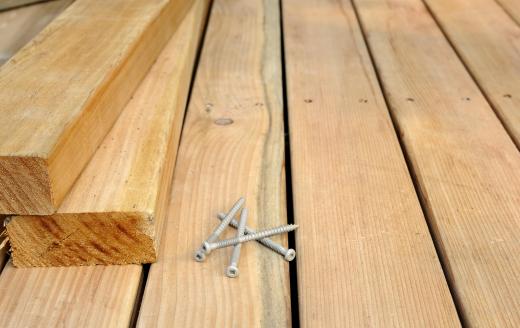A box wrench, also known as a box-end wrench or a ring spanner, is a specially designed wrench that is enclosed on one or both ends and made to go around a specific type of nut or bolt. The wrench is designed for loosening bolts with a specific number of sides, such as six or 12. The design of the wrench allows it to be adjusted to turn the bolt even in tight spaces where movement is limited.
Wrenches are used to allow the user to loosen a bolt or nut he typically wouldn't be able to with his bare hands. The wrench may be bent on either end at a certain angle to make it easier to turn the bolts. The angle and twisting motion of the wrench applies extra force with less effort on the user's end. It also creates a stronger grip around the bolt, whereas if the user tried to use his bare hands his fingers would simply slip off the bolt.

The ends of the box wrench are enclosed, and typically it is enclosed on both ends instead of one. When in use, the circular end is slipped over the bolt and the wrench is rotated. The right box wrench must be used or it will not work. The bolts have a specific number of sides which the wrench will grip to turn. Using a wrench designed for bolts or nuts with fewer or more sides than the wrench is designed for means the wrench will either be too big or too small.

While the box wrench is typically double ended, other variations are available. For those who need a more versatile tool, a standard wrench may be combined with a box wrench. One end will be enclosed while the other end is open in the traditional wrench shape. This allows a worker to install different types of bolts without stopping to switch tools. He simply turns the wrench over when he needs to access the other end.
More expensive versions of this wrench are available, with more options and some that are easier to turn or fit in tight spaces. For the basic worker, however, the traditional box wrench will work. Depending on the job, he may want to purchase a set of different size wrenches to ensure he always has the right size for any bolt type he may encounter.
